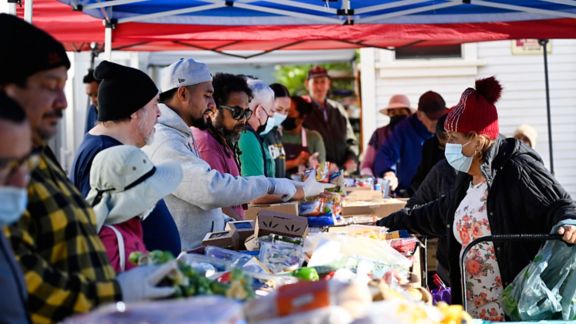Community Overdose Prevention Education: Project COPE

Problem
Drug overdose continues to rise despite prevention and treatment efforts.
More than 932,000 Americans have died of a drug overdose since 1999. In 2021, overdose deaths surpassed 100,000 in a 12-month period for the first time in the U.S. and are continuing to rise despite prevention and treatment efforts.
Solution
NORC is evaluating Project COPE, which provides targeted overdose prevention education for professionals and communities.
The Substance Abuse and Mental Health Services Administration (SAMHSA) awarded the New York State Office of Addiction Services and Supports (OASAS) a grant to provide opioid overdose prevention education for disproportionately affected populations in New York State and the professionals who serve them. These populations include:
- Pregnant, parenting, and postpartum women and their families
- Persons experiencing intimate partner violence
- Native American communities
- LGBTQIA+ individuals
OASAS contracted with NORC to evaluate the project and determine its impact on knowledge and skills transfer, Naloxone distribution, and overdose.
Result
Our evaluation will monitor key deliverables and outcomes to maximize Project COPE’s impact.
We are using evaluation data to track progress towards goals and objectives, for quality improvement, and to assess the impact of opioid-related overdoses among disproportionately affected communities. Findings will inform strategies to address gaps in overdose prevention in training, Naloxone distribution and administration, and disparities in access to services.
Contact
Related Tags
Project Leads
-
Brett Harris
Senior Research ScientistProject Director -
Adrienne Call
Senior Research ScientistProject Manager










